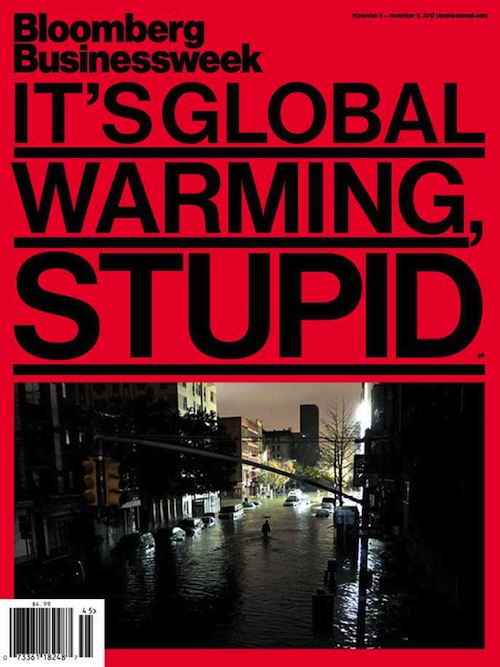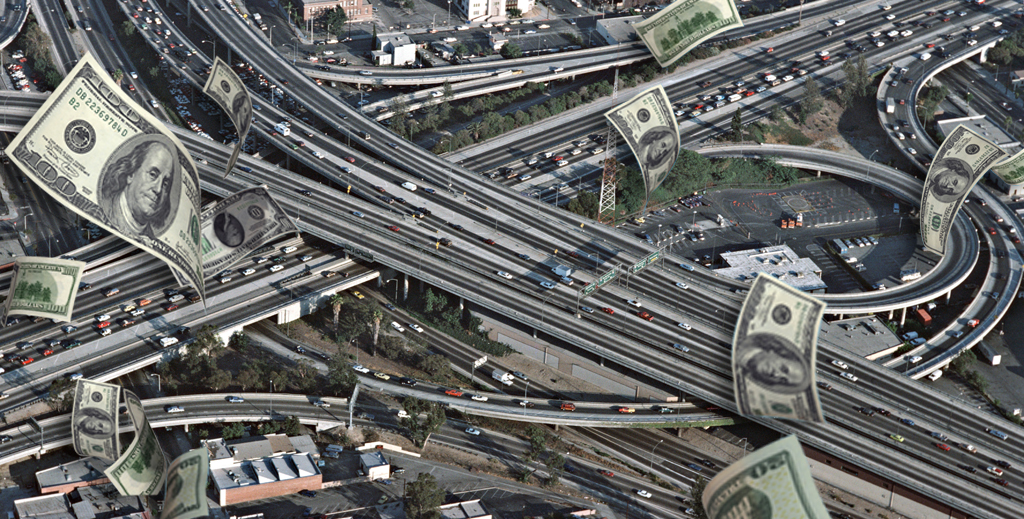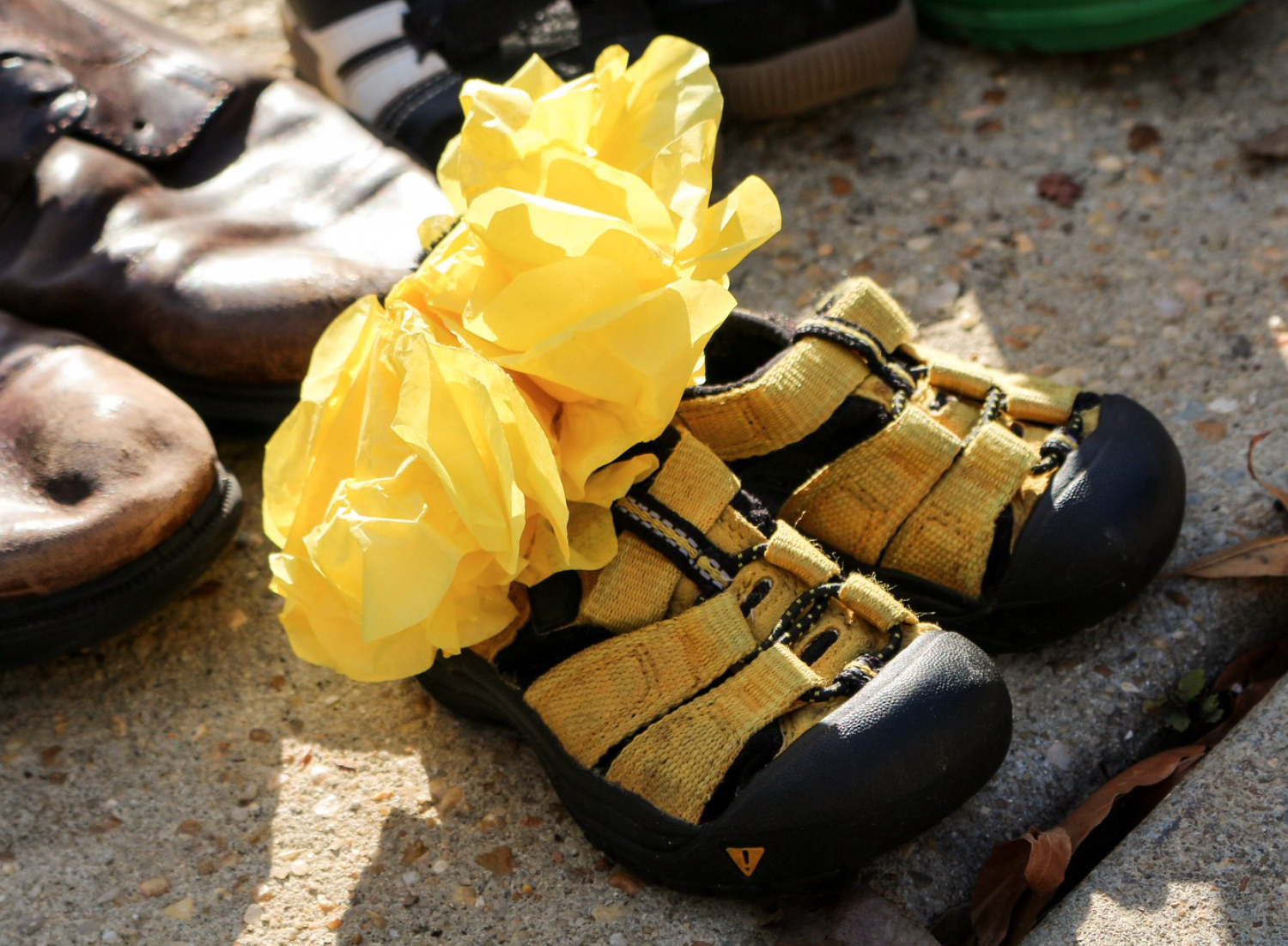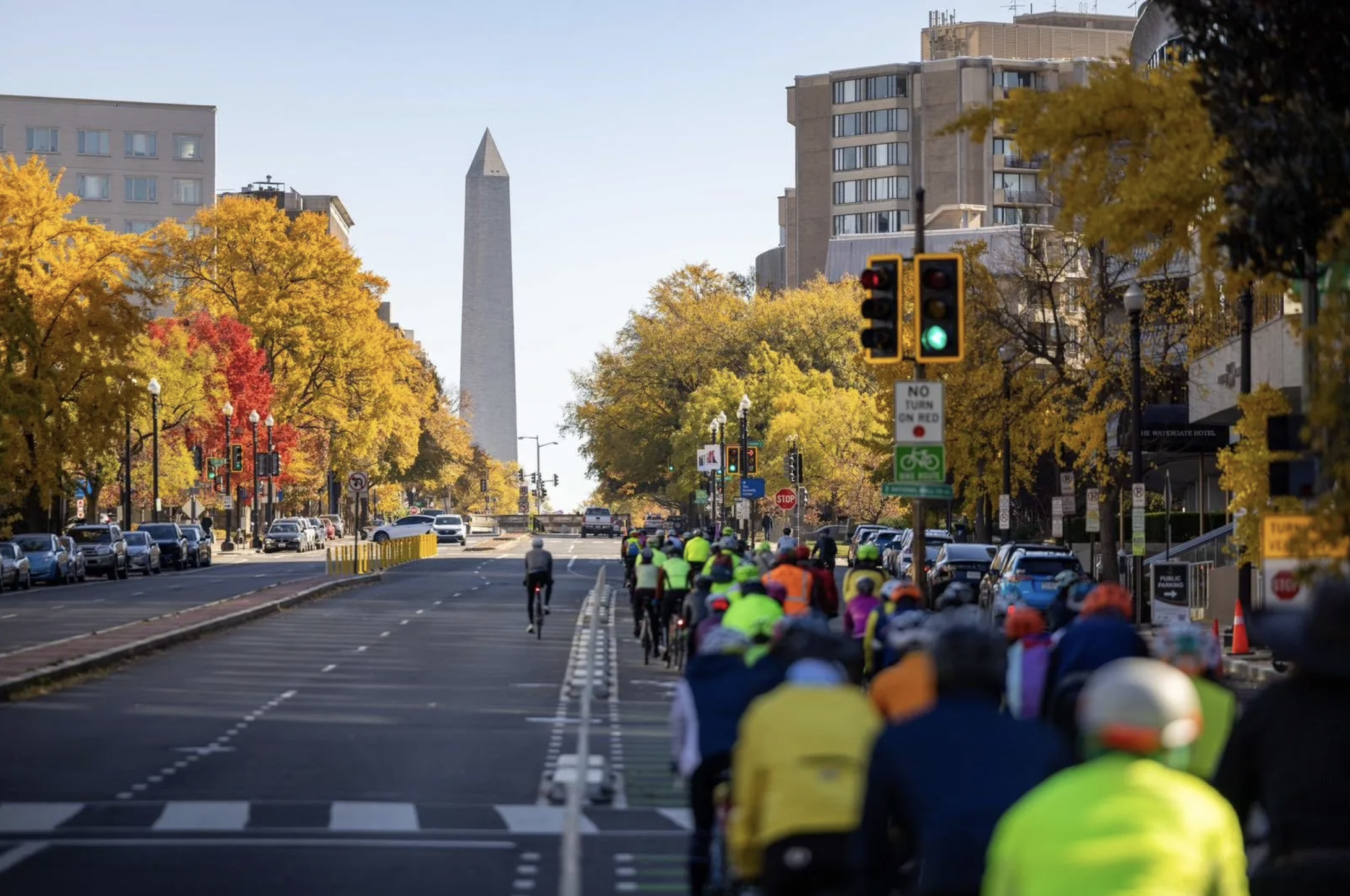
If there's any good news to come out of the devastation of Hurricane Sandy, it's that political leaders and the press are actually talking about climate change. At the end of a long campaign season with barely a mention of the issue, it's a relief to hear some sane discussion of the issue based on the premise that global warming is real.
While climate scientists hesitate to attribute any single weather event to global warming, many agree that elevated temperatures and sea levels conspired to make this storm especially damaging. And the frequency of storms like Sandy, they warn, will only escalate as global temperatures rise.
We've collected, below, some of the most notable statements about the connection between Sandy and climate change, and what it means for the future:
- Bloomberg Businessweek made the scene of a flooded NYC street its cover, carrying the news that global insurers are beginning to warn about the connection between climate change and extreme weather events. A Germany-based insurer reported that the number of weather-related loss events in North America has nearly quintupled over the past three decades.
- The Center for American Progress reports that the United States experienced a record 14 extreme weather events that caused more than $1 billion in damage and there have been seven so far this year. Only five states were spared damage.
- New York Governor Andrew Cuomo wasn't mincing words on the topic. "Part of learning from this is the recognition that climate change is a reality," he said Wednesday during a helicopter tour of the damage. "Extreme weather is a reality. It is a reality that we are vulnerable. There's only so long you can say, 'This is once in a lifetime, and it's not going to happen again.'"
- Democrat-turned-Republican-turned-Independent Michael Bloomberg of New York may have been inspired by Sandy in his announcement today that he's endorsing President Obama for reelection. He titled his press release, "Vote for a president who will lead on climate change." He continued: "In just 14 months, two hurricanes have forced us to evacuate neighborhoods – something our city government had never done before. If this is a trend, it is simply not sustainable. Our climate is changing. And while the increase in extreme weather we have experienced in New York City and around the world may or may not be the result of it, the risk that it might be – given this week's devastation – should compel all elected leaders to take immediate action."
- Ezra Klein at the Washington Post reports that weather related fatalities are on the rise in the United States. The worst weather-related disasters in the 1940s and 1950s resulted in about 800 deaths annually. Compare that to 2005 -- the year Hurricane Katrina struck -- when 1,400 deaths were attributable to extreme weather. Last year, there were nearly 1,100 such deaths, he reports.
- Nicholas Kristof at the New York Times wonders if Sandy will awaken the press corps to the dangers posed by climate change. He reports that a Times analysis found that three of the ten biggest floods in lower Manhattan since 1900 occurred in the last three years.
- John Gapper writes in the Financial Times that New York City "is one of the most civilised, least dangerous of US cities – except for a change in the climate." What was only recently a gritty, seedy town has been spruced up and gentrified, Gapper says, but with the increasing frequency of extreme weather events, it's failing at any city's central task: protecting its inhabitants from the ravages of nature.
- Wen Stephenson writes in the Boston Phoenix that the media have endangered Americans by treating global warming as "as just another special interest, something only environmentalists care about." Only through the broad-based grassroots efforts of the American public can the fossil-fuel industry's hold on American politics be broken, he said. But the media is not helping. "Business-as-usual, politics-as-usual, and journalism-as-usual are failing us when it comes to addressing the climate threat," he writes.
- Author and environmentalist Bill McKibbon wrote in the New York Daily News that hurricanes, rather than being named after people, should be named after oil companies, so directly are these entities responsible for the devastation that has resulted. His 350.org group is circulating a petition asking oil companies to suspend lobbying activities in the wake of the disaster and instead give the money to relief efforts.
- McKibben also points to a 2011 study published in Nature Climate Change that found that 100-year storm surges could hit New York as often as every three years by 2100, if atmospheric conditions continue on their current trends.
- Meanwhile, a reporter at Fox News blames warming trends on "Mars wobbles."
That's just a sample of what's being said. If you have some favorites we've overlooked, please let us know in the comments.





